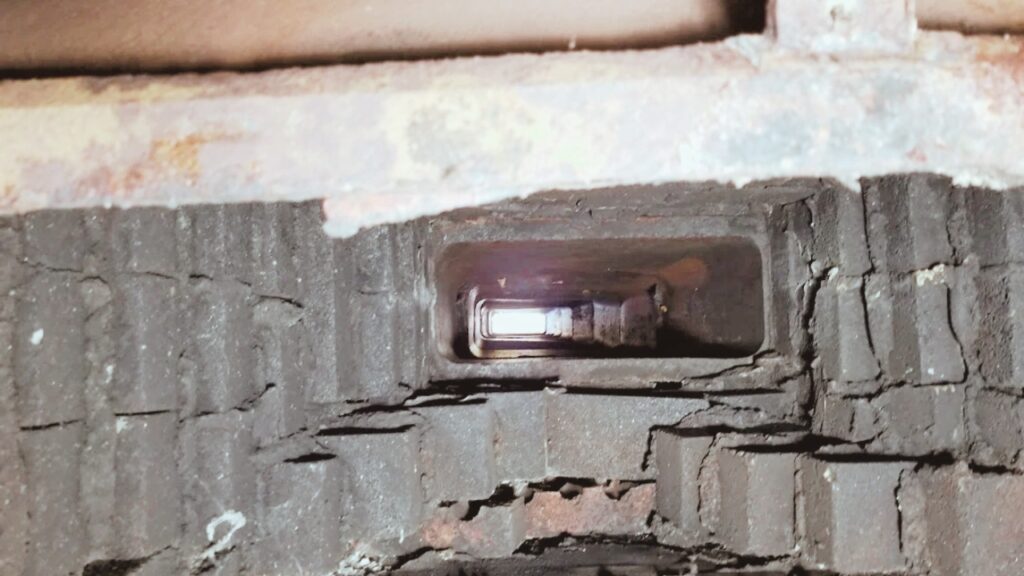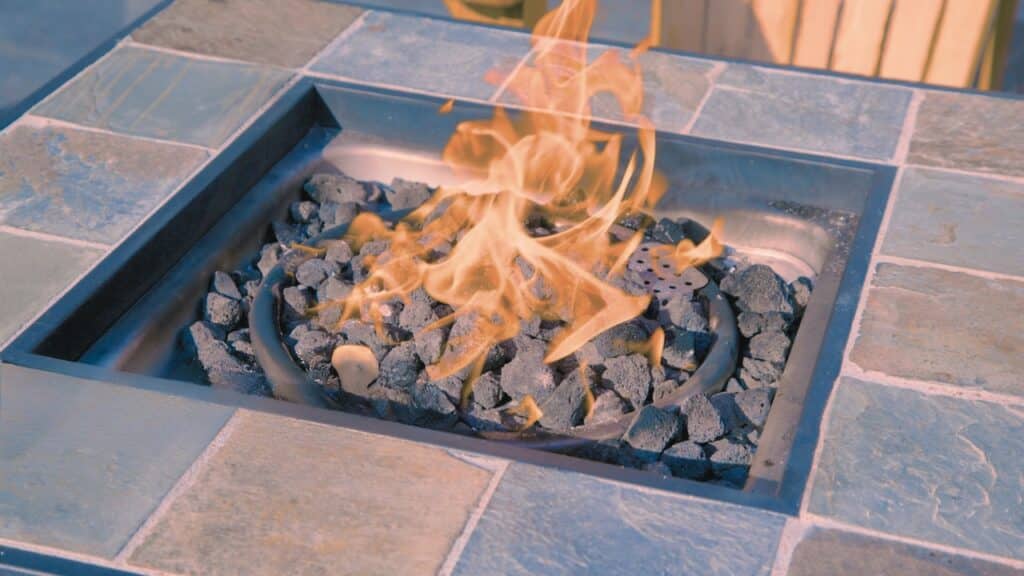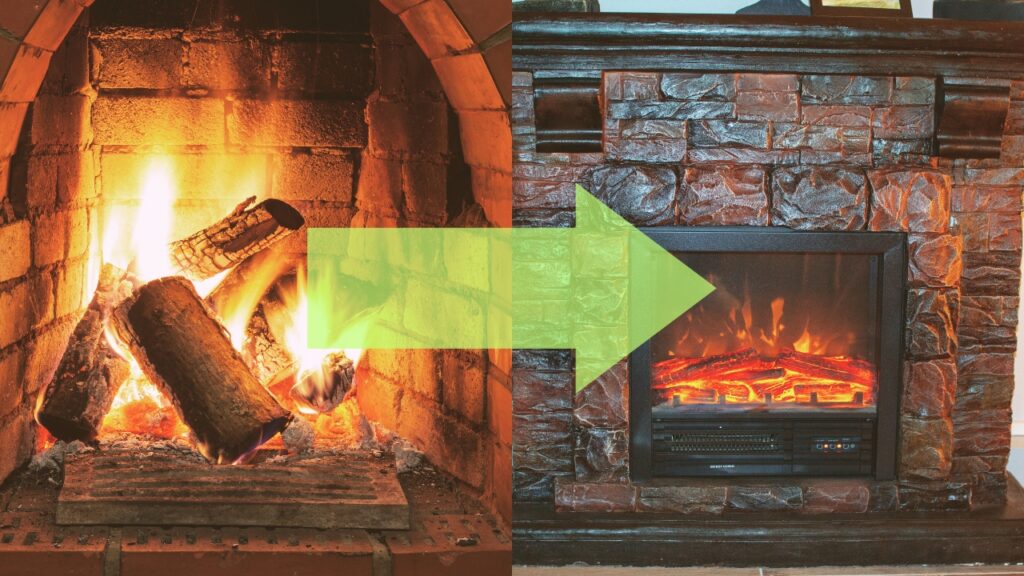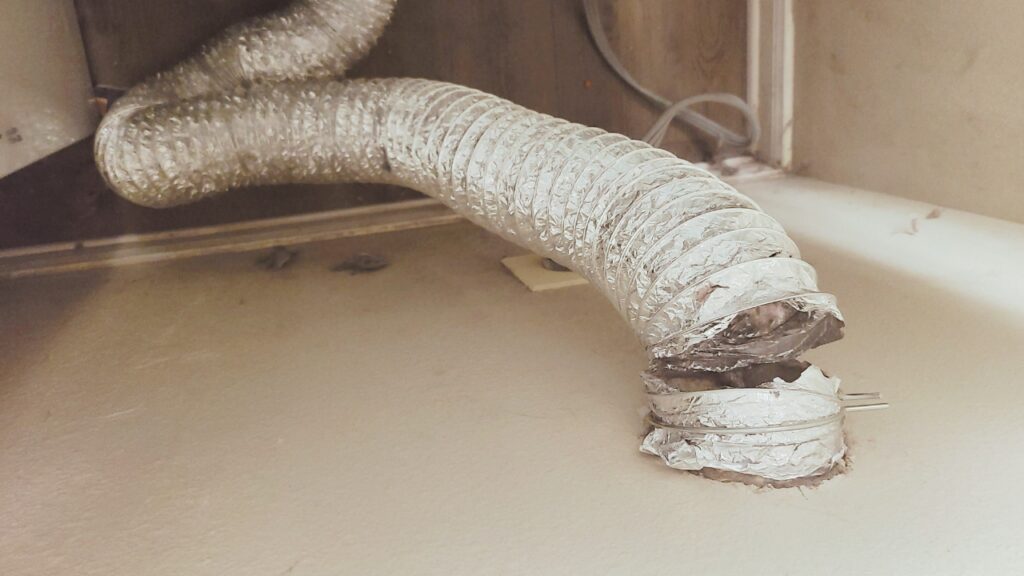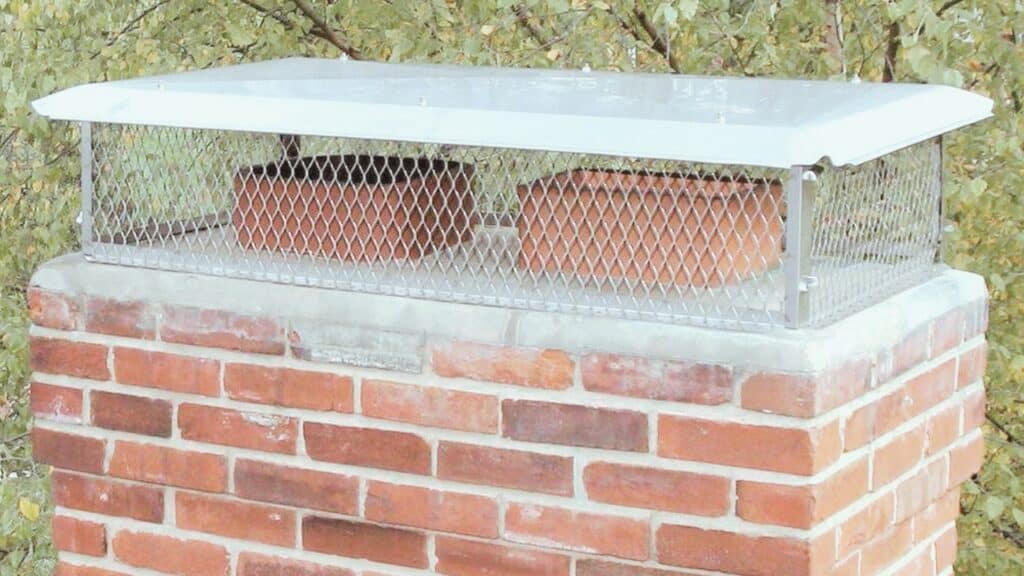It’s summertime, but your fireplace produces a strange smell, unlike the pleasant, wood-burning smell you’re used to. You’re not the only one! This is a common occurrence, and there are several possible explanations.
This guide will discuss what causes fireplace smells in the summer and how to remedy the situation.
Most of the smells entering your home from drafts go down your chimney. Sometimes, the odors are just from the outside. However, you may have a problem if the unpleasant smell doesn’t disappear.
To fix your smelly problem, you need to figure out why does your fireplace smells in the first place.
We’ll go over a few of the most common reasons you have a fireplace smell and how to get rid of it.
Why Does My Fireplace Smell in the Summer?
There are several reasons your fireplace may smell during the summer; we explain them in detail below.

1. Air Pressure and Drafting Problems
During summer, the warm air outside rises while the cooler air inside your home sinks. This can create a negative pressure difference between your fireplace and the outdoors.
When this happens, smoky air from your fireplace can be drawn into your home through cracks and gaps in the chimney.
Because warm air rises, it can cause the chimney to act like a giant straw and suck smoky air into your home. This is why air pressure and drafting problems are one of the most common causes of fireplace smells in the summer.
2. Creosote Build-Up
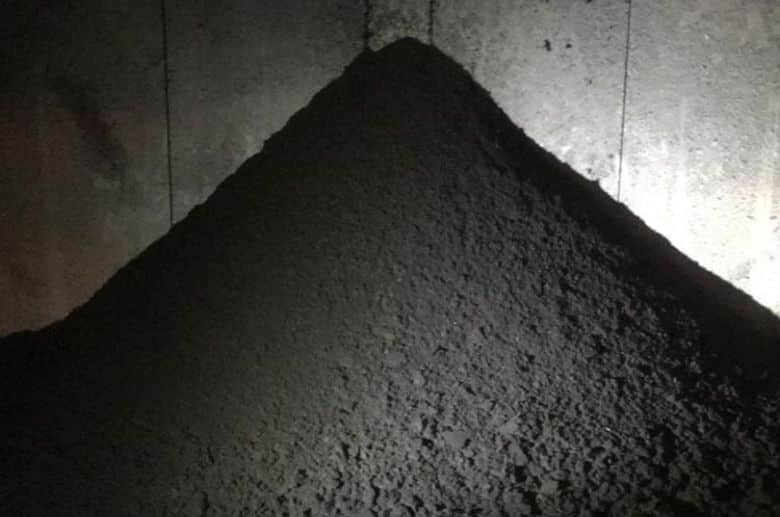
So, why is creosote buildup more prevalent during the summertime?
Well, it has to do with the increased humidity in the air. You see, creosote is a byproduct of burning wood. It’s a sticky, flammable substance that can build up on the walls of your chimney.
And when there’s more moisture in the air, this creosote is more likely to stick to your chimney walls and form a dangerous buildup.
If not removed, it can cause a toxic smell from your fireplace. That’s not all. Creosote is also flammable, so it’s essential to have it removed by a professional if it has built up in your chimney.
——
Do You Need to Hire Chimney & Fireplace Expert?
Get free quotes from qualified experts near you. No commitment required!
——
3. Trapped Animals in Chimney
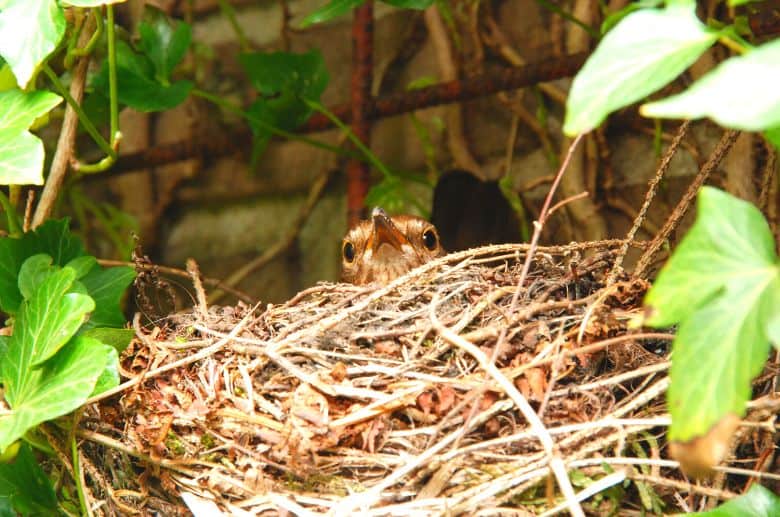
Summertime is also when animals are most likely to reside in your chimney.
That’s because they’re looking for a cool, dark place to escape the heat. Bats are particularly fond of chimneys, but birds and squirrels can also get trapped inside.
If an animal gets trapped in your chimney, you’ll likely smell it before you see it. That’s because they will leave behind droppings and urine, creating a nauseating smell.
The hot, humid summer air can make the smell even worse. This is because the heat causes animal waste to decompose more quickly, which amplifies the odor.
It gets worse if the same animals die inside your chimney. In this case, you’ll not only smell the animal, but you’ll also smell the decomposing body. Either way, it’s not a pleasant experience.
4. Moisture in Your Chimney
Hot and humid air is the immaculate description of the summer season. Due to the elevated moisture levels, your fireplace is more vulnerable to water damage.
Water can enter your chimney through cracks and holes, causing the bricks to deteriorate. This damages your chimney and creates an ideal environment for mold and mildew to grow.
And as you probably know, mold and mildew have a musty smell that can quickly take over your entire home. If you notice a musty smell from your fireplace during summer, it’s likely due to moisture damage.
It would be best to have a professional inspect your chimney for any damage and make the necessary repairs.
5. Chimney Blocked with Debris
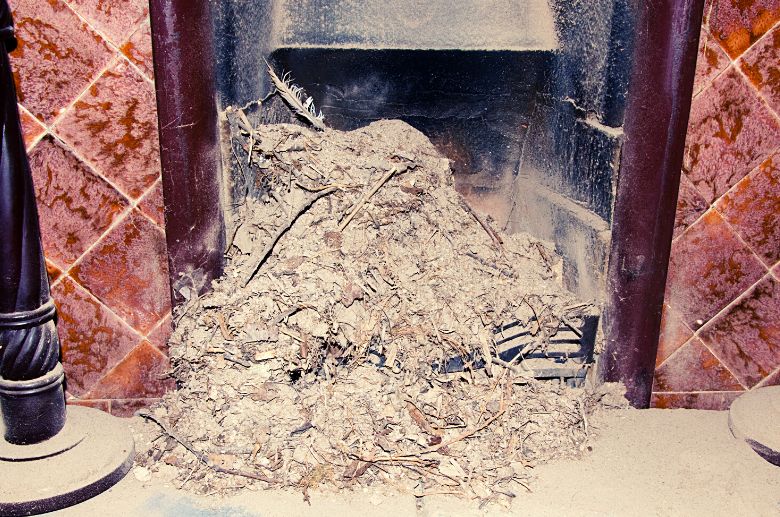
Debris can also cause fireplace smells in the summer. That’s because hot weather can cause leaves, sticks, and other debris to fall into your chimney threw the chimney cap.
If this happens, it will block the airflow and trap the smoke inside. As a result, you’ll likely smell smoke when you use your fireplace.
The debris may even catch fire in some cases, which can be a serious safety hazard.
To prevent this, it’s essential to have your chimney cleaned regularly. This will remove any debris that could potentially cause a blockage.
The hot air levels during summer can also cause creosote and soot to accumulate in your chimney leading to blockage.
Hiring a professional chimney sweep to clean your chimney and prevent any blockages would be best.
——
Do You Need to Hire Chimney & Fireplace Expert?
Get free quotes from qualified experts near you. No commitment required!
——
Is it Normal for the Fireplace to Smell on Hot Days?
It’s normal for a fireplace to smell when it’s hot outside. Creosote and ash buildup in the chimney combined with high humidity can cause smells to seep into the house.
Once the smell is in the house, it can be challenging to get rid of. We strongly recommend you keep your damper closed when not in use and have your chimney cleaned and inspected regularly to prevent this from happening.
Call a chimney sweep to clean the fireplace and chimney if the smell persists. This will remove the scent’s source and help prevent it from returning.
Does Fireplace Smell Go Away on Its Own?
It’s difficult to say how long the fireplace smell will last. It depends on several factors, including the type of wood burning, the moisture content of the wood, the temperature, and the humidity.
The smell should dissipate quickly if you have a gas or electric fireplace. This is because there is no soot or creosote buildup, which can cause chimney smells in summer.
If you have a wood-burning fireplace, however, you may notice the smell of smoke wafting through your home during the warmer months. This is because the chimney is not being used as often, and the airflow is not as strong.
The best way to get rid of the fireplace smell is to take action to prevent it from happening in the first place. And in the next section, we’ll show you how to do just that.
How to Get Rid of Fireplace Smell in Summer
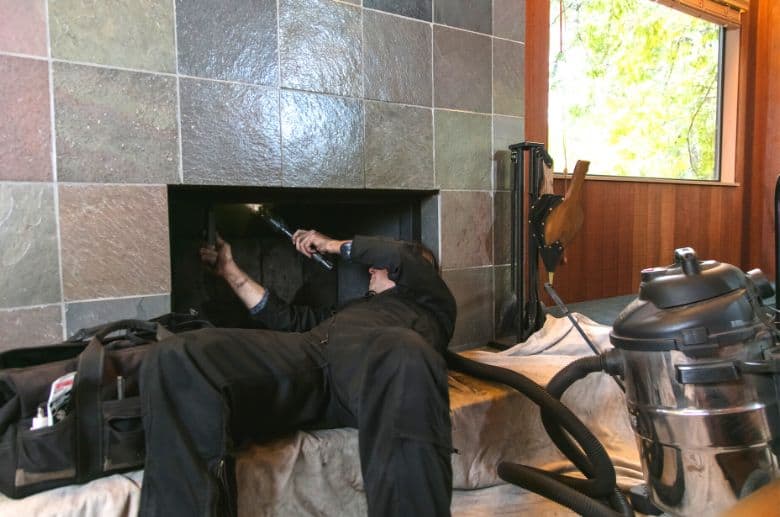
The best way to get rid of the fireplace smell in the summer is to have your chimney cleaned and inspected by a professional. If you notice any soot or debris buildup, have it removed immediately, and this will help prevent any smells from seeping into your home.
There’s also the DIY route that we recommend if you want to put your skills to the test. It’s possible to get rid of the fireplace smell in summer with the proper steps.
Below, we’ll outline the easy steps to follow, but don’t hesitate to contact our team of experts if you need more help.
DIY Warning: Use Safety Equipment
Using the necessary equipment when you want to get rid of the fireplace smell in summer should be your priority. This includes gloves, a dust mask, and safety goggles.
Sometimes, you may need a respirator if the smoke is too intense. Don’t jeopardize your safety for the sake of getting rid of the fireplace smell. Once you have the proper equipment, you can move on to the next step.
——
Do You Need to Hire Chimney & Fireplace Expert?
Get free quotes from qualified experts near you. No commitment required!
——
Step 1: Check for a Missing or Damaged Chimney Cap
Chimney caps are essential in the summer because they keep animals and debris from entering your chimney. If you don’t have a chimney cap, now’s the time to install one.
You should also check to see if your chimney cap is damaged. Look at the cap itself and check for any cracks or holes. You can use a ladder to get a good view of the chimney cap.
A damaged chimney cap can allow air to escape, which will cause the fireplace smell to seep into your home. If your chimney cap is damaged, you’ll need to replace it before moving on to the next step.
Step 2: Seal and Waterproof Your Chimney
As mentioned earlier, moisture is one of the main culprits of fireplace smells in the summer. Once you’ve checked for a missing or damaged chimney cap, it’s time to seal and waterproof your chimney.
This will help prevent any water from entering your chimney and cause the fireplace smell to worsen.
- You should start by sealing the outside of your chimney with a waterproofing sealant.
- Once you’re through sealing the exterior, move on to the interior of your chimney.
- Use a water-based sealant on the inside of your chimney, but make sure it’s labeled as safe for use on fireplaces.
- Applying the sealant is simple – just follow the directions on the product label. After sealing your chimney, you should notice a significant difference in the fireplace smell.
You can use various products to seal and waterproof your chimney, but we recommend using a silicon-based sealant. This sealant will create a waterproof barrier that will keep water out of your chimney.
Step 3: Clean Your Fireplace
If you want to eliminate the fireplace smell in summer, you need to clean your fireplace.
- Start by removing any ashes or debris that have accumulated in your fireplace.
- Once you’ve removed the ashes and debris, you can use a wire brush to scrub the inside of your fireplace. This will help remove any soot or buildup causing the fireplace smell.
- After you’ve scrubbed the inside of your fireplace, you can use a vacuum to remove any dust or debris.
Step 4: Deodorize the Firebox
Who says you can’t have a fresh-smelling fireplace in the summer?
You can deodorize the firebox with various household items to eliminate the fireplace smell.
The first method is to use the popular home remedy product, baking soda. Baking soda is a natural absorbent that will help remove the fireplace smell.
- Sprinkle a layer of baking soda in the firebox and let it sit for 24 hours.
- After 24 hours, vacuum up the baking soda, and you should notice a difference in the fireplace smell.
Another method is to use white vinegar. White vinegar is a natural deodorizer that will neutralize the fireplace smell.
- Mix equal parts water and white vinegar in a spray bottle to use this method.
- Then, Spray the mixture onto the inside of the firebox and let it sit for 30 minutes.
- After 30 minutes, wipe down the firebox with a damp cloth.
Step 5: Fireplace Deodorant
Besides using your household items, you can also purchase a fireplace deodorant to help get rid of the fireplace smell. You can find these at most home improvement stores both online and in-person. They come in different forms, but the most common type is a spray.
These products are designed to eliminate fireplace smells and come in various forms, such as sprays or candles.
Place the deodorant in the firebox and let it work its magic. You should notice a difference in the fireplace smell within a few days.
Step 6: Use Charcoal and Candles
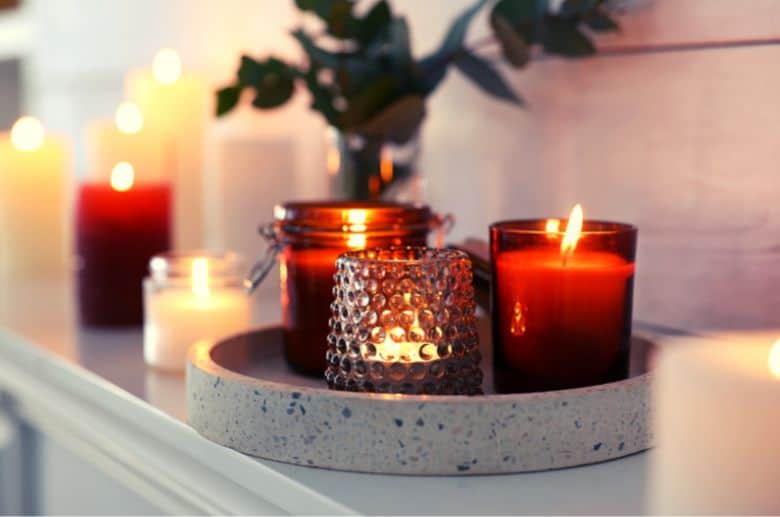
This method may take some time, but it’s worth it if you want a fresh-smelling fireplace.
- Start by lighting a few candles in your fireplace.
- Then, add charcoal to a fireproof container and place it in the fireplace.
- Let the candles and charcoal sit in the fireplace for 24 hours.
- The charcoal will absorb the fireplace smell, and the candles will neutralize the odor.
- After 24 hours, you should notice a significant difference in the fireplace smell.
Step 7: Close the Damper
Ensure that damper has a tight seal and is top-mounted, with a chain to control its opening and closing.
This should be done whenever the fireplace is not in use to reduce odors and to keep cooled – or heated in winter – air inside your home.
Drafts coming through your chimney are one of the main reasons you can smell all of these problems in the first place. However, they also bring outside smells into your home.
Even if your chimney has no problem, you may get a pungent odor from time to time.
Step 8: Install Fireplace Door
Fireplace doors would also help prevent drafts from bringing outside smells into your home.
They also create a physical barrier between your living space and the fire, which would help to contain any smells that manage to get through.
Step 9: Try an Air Purifier
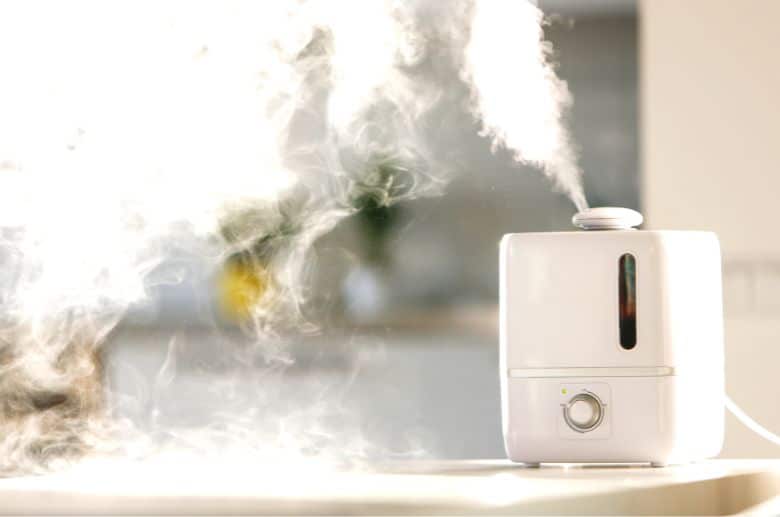
Air purifiers work by trapping airborne particles and removing them from the air. This includes fireplace smells.
Place the air purifier in the room where you have your fireplace and let it run for a few days. You should notice a difference in the fireplace smell within a few days.
Conclusion
Nobody wants a smelly fireplace during the summer. Luckily, you can do a few things to eliminate the fireplace smell.
However, contacting a professional is the most effective way to eliminate fireplace smells in the summer. They will be able to identify the source of the smell and fix the problem so that you can enjoy your fireplace all year long.

